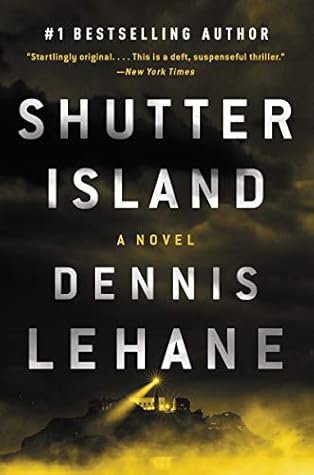More on this book
Community
Kindle Notes & Highlights
“Please don’t go.” His tears spill down her body and mix with her pouring belly. “I need to hold you just a little longer. A little longer. Please.”
She lets loose a small bubble of a sound—half sigh, half howl, so torn and beautiful in its anguish—and she kisses his knuckles. “Okay. Hold tight. Tight as you can.” And he holds his wife. He holds her and holds her.
I held her, he wanted to say to Chuck and Trey and Bibby. I held her as Bing Crosby crooned from the kitchen radio and I could smell her and the apartment on Buttonwood and the lake where we stayed that summer and her lips grazed my knuckles.
I held her. This world can’t give me that. This world can only give me reminders of what I don’t have, can never have, didn’t have for long enough.
We were supposed to grow old together, Dolores. Have kids. Take walks under old trees. I wanted to watch the lines etch themselves into your flesh and know when each...
This highlight has been truncated due to consecutive passage length restrictions.
I held her, he wanted to say, and if I knew for certain that all it would take to hold her again would be to die, then I couldn’t raise the gun to my head fast enough.
“Which school are you?” Teddy asked gently. “Believe it or not, Marshal, I believe in talk therapy, basic interpersonal skills. I have this radical idea that if you treat a patient with respect and listen to what he’s trying to tell you, you just might reach him.”
If after all my sins—all my drinking, all the times I left you alone for too long, let you down, broke your heart—if I can ever make up for any of that, this might be the time, the last opportunity I’ll ever have. I want to do right, honey. I want to atone. You, of all people, would understand that.
“God’s gift,” the warden said, and his arm swept the torn grounds. “His violence. When I first came downstairs in my home and saw the tree in my living room, it reached toward me like a divine hand. Not literally, of course. But figuratively, it stretched. God loves violence. You understand that, don’t you?”
“Why else would there be so much of it? It’s in us. It comes out of us. It is what we do more naturally than we breathe. We wage war. We burn sacrifices. We pillage and tear at the flesh of our brothers. We fill great fields with our stinking dead. And why? To show Him that we’ve learned from His example.”
“God gives us earthquakes, hurricanes, tornadoes. He gives us mountains that spew fire onto our heads. Oceans that swallow ships. He gives us nature, and nature is a smiling killer. He gives us disease so that in our death we believe He gave us orifices only so that we could feel our life bleed out of them. He gave us lust and fury and greed and our filthy hearts. So that we could wage violence in His honor. There is no moral order as pure as this storm we’ve just seen. There is no moral order at all. There is only this—can my violence conquer yours?”
“That’s the spirit,” the warden whispered. Teddy set his feet, could feel the blood rushing through his arms. “Yes, yes,” the warden whispered. “’My very chains and I grew friends.’”
“That’s Byron,” the warden said. “You’ll remember that line, won’t you?”
Everyone wants a quick fix. We’re tired of being afraid, tired of being sad, tired of feeling overwhelmed, tired of feeling tired. We want the old days back, and we don’t even remember them, and we want to push into the future, paradoxically, at top speed. Patience and forbearance become the first casualties of progress. This is not news. Not news at all. It’s always been so.”
He saw his wife in her violet dress the night he’d met her and saw the look in her face that first moment of seeing her, that look he’d fallen in love with. He’d thought it had just been the dress, her insecurity about wearing such a fine dress in a fine club. But that wasn’t it.
It was terror, barely suppressed, and it was always there. It was terror of the outside—of trains, of bombs, of rattling streetcars and jackhammers and dark avenues and Russians and submarines and taverns filled with angry men, oceans filled with sharks, Asians carrying red books in one hand and rifles in the other.
She was afraid of all that and so much more, but what terrified her most was inside of her, an insect of unnatural intelligence who’d been living in her brain her entire life, playing with it, clic...
This highlight has been truncated due to consecutive passage length restrictions.
But he’d failed her. Failed his children. Failed the lives they’d all built together because he’d refused to see Dolores, really see her, see that her insanity was not her fault, not something she could control, not some proof of moral weakness or lack of fortitude.
He’d refused to see it because if she actually were his true love, his immortal other self, then what did that say about his brain, his sanity, his moral weakness?


